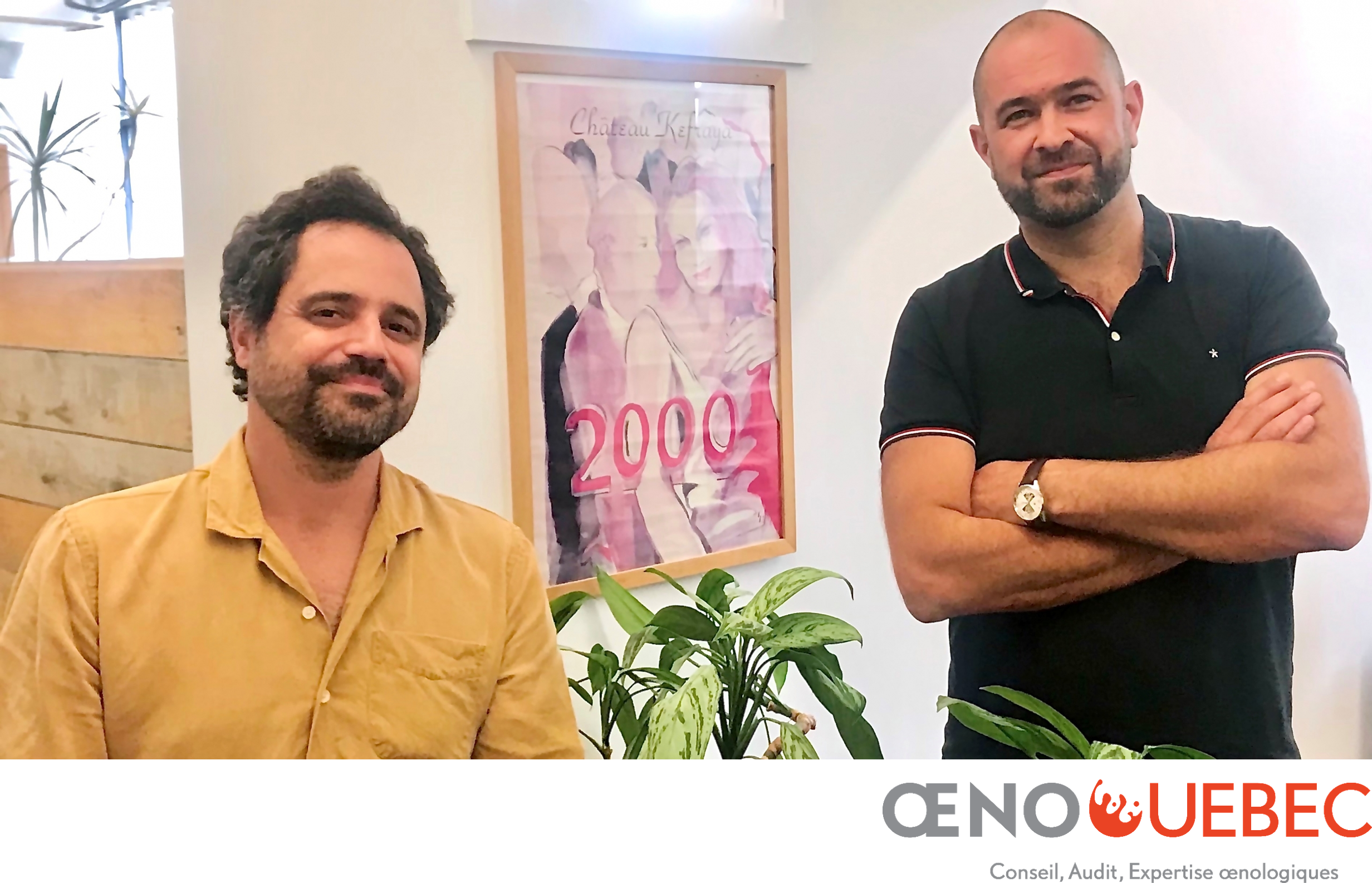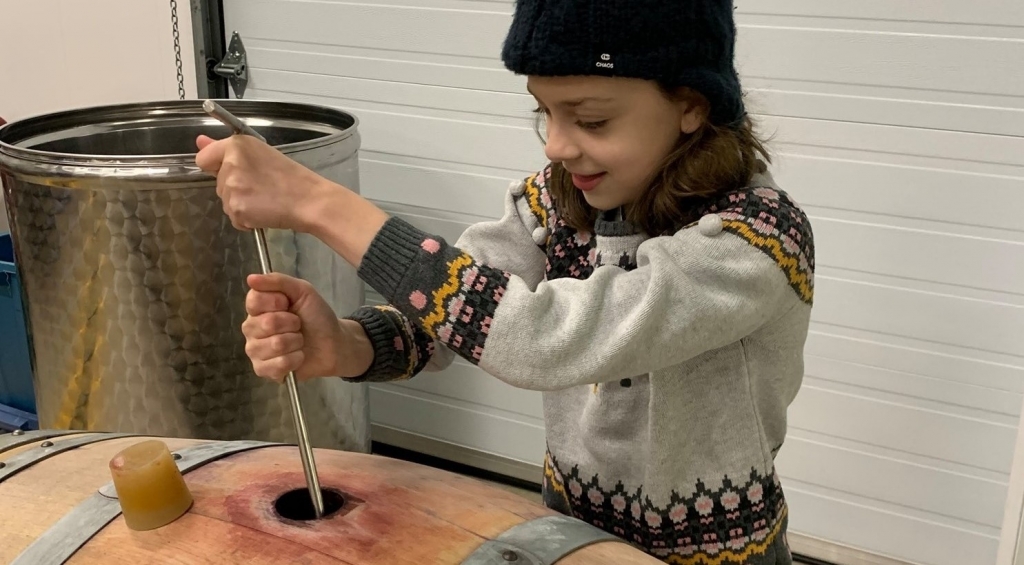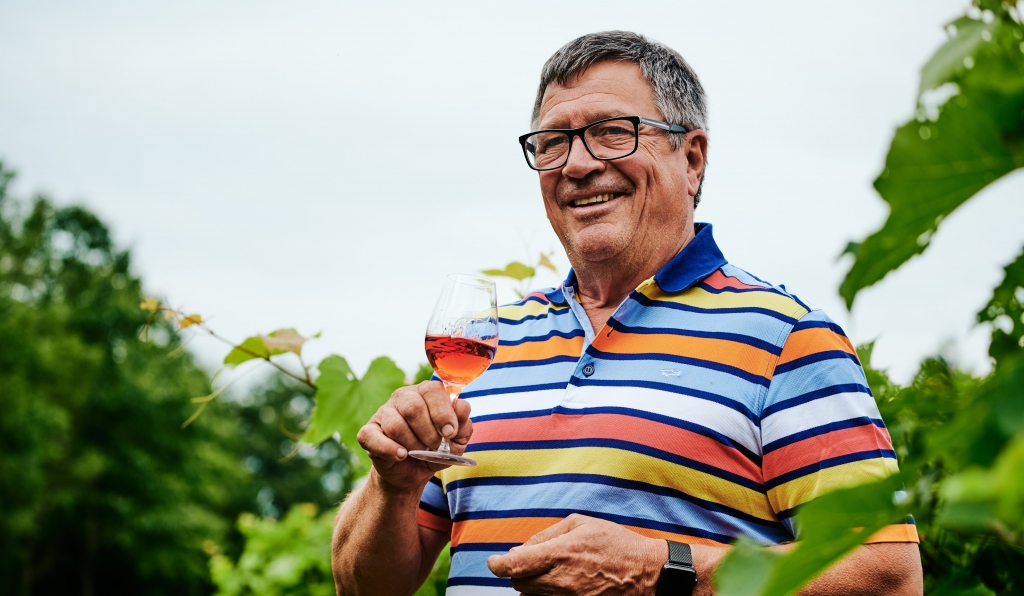Profession : œnologist
They are rare as snow in July and generally prefer to work in the shade. At the border between agronomist, microbiologist and chemist, oenologists are nevertheless the essential ingredient in any good cuvée!
In order to demystify this profession that is still little known among us, we spoke with Jérémie d’Hauteville and Richard Bastien, graduate oenologists and founders of OenoQuébec, an oenology consulting firm in the province. Join the discussion….

What is an oenlogist?
Jérémie:
“We are there to technically supervise the producers; those who are just starting out as those who are already in activity. The “start-up” component begins with the planting by choosing the grape varieties according to the geographical location of the vineyard and what the winemaker wants to do as wines.
“Once the grapes are planted, we focus on the layout of the cellar according to the budget and the volume we want to produce. Afterwards, it is the establishment of the wine-making schemes, from the harvest of the grapes to their bottling and aging.
“This is where the ”advice” side of oenology really begins, that is to say the monitoring of the different vintages, the training of the producer, the tastings, the analyzes to ensure that the vinification takes the right path. We can also help with the marketing and marketing of the product. “
Why are there few oenologists in Quebec?
Richard:
“The title of oenologist is based on a diploma that is not granted in Canada and which corresponds to a master’s degree in oenology. We studied for a long time in France [in Burgundy and Champagne] to acquire this expertise on the chemistry of wine.
“When we arrived in the early 2000s, wine-growing Quebec was not where it is today. You could hear a lot of people calling themselves oenologists, but there was a lot of charlatanism. We fought to protect our title. This is why we set up this firm: to meet a need and really establish the profession of oenologist.”
What is your view of the evolution of the Quebec vineyard?
Active in Quebec for fifteen years and important players in the growth of the industry, the two oenologists share their findings…
Richard:
“At first, we focused on winemaking. 10-15 years ago, we did a lot more curative. The producers had a problem with their production and called us.
“Today, we are working a lot more upstream, in prevention. We have trained our wine producers as much as possible to provide basic techniques to ensure that quality wines are produced. Today, we work more on viticulture and in-depth knowledge of each grape variety. The future of wines in Quebec is now more in the field than in the cellar.”
Jérémie:
“Fifteen years ago wine growing was like a very slow train. The producer could get off at the station and re-embark whenever he wanted. He could afford to make a few mistakes.
“Now the train is going fast, you have to be able to catch it and you can’t get off. A vineyard project must be built, thought out and serious. The industry has become more professional and the quality of the wines has increased.”
Over the years, have we established a precise profile for Quebec wines?
Richard:
“It remains to find a strong identity. Now that we are able to grow just about anything, what characterizes Quebec wine? We still don’t know. We try a lot of things, we do everything and we are always looking. We go where the wind blows. 15 years ago it was white wines, bubbles and ice wine, today it is plain wines, natural sparkling wines, orange wines or in amphorae. Not to mention the diversity of rosé and red wines …
“In addition, vitis viniferas [grape varieties of European origin considered more noble than the hybrids traditionally used in Quebec] have arrived to enhance quality. There are 50 grape varieties in Quebec for about 1 000 hectares of vines. In Burgundy, we have four grape varieties for 30,000 hectares… There is a natural selection that will take place over the next few years.”
Jérémie:
“It’s the beauty of being in a new producer country: anything is possible, everything is possible while respecting the standards in force. Time will do things. We will arrive at maturity in terms of surface area and grape varieties, between hybrids and viniferas . This clarification will be made in 10, 20 or 30 years, and we will arrive at a certain maturity of the industry in terms of products and prices.”
What relations do you have with the winegrowers with whom you work?
Richard:
“Jérémie and I follow around 30 producers each. We work according to each person’s sensitivities; we have therefore become jack-of-all-trades. Everything interests us and everything is interesting. We are still working with certain producers with whom we started 15 years ago. Today they are happy, fulfilled and very grateful. For us, it’s great to have started from scratch and come up with an industry that is viable, successful and healthy.”




